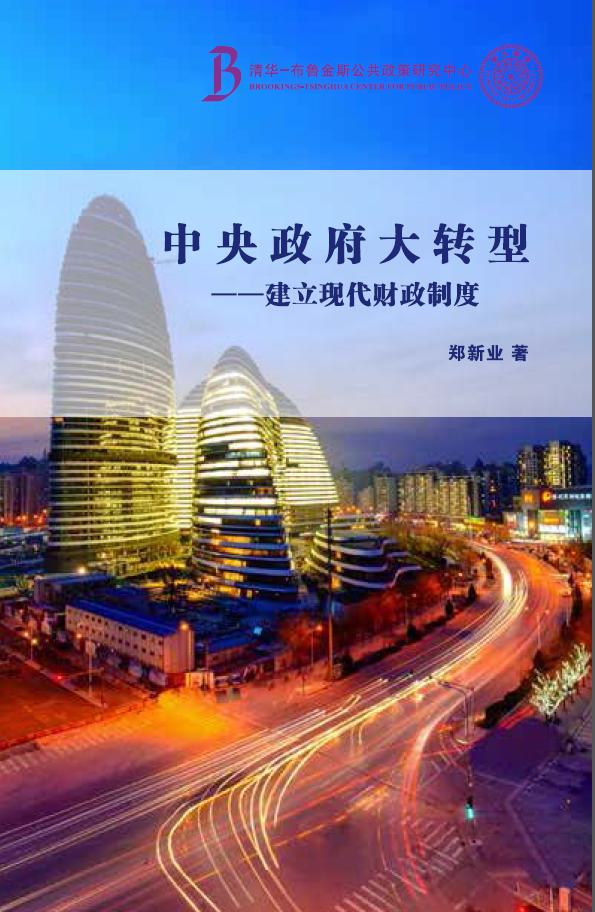Content from the Brookings-Tsinghua Public Policy Center is now archived. Since October 1, 2020, Brookings has maintained a limited partnership with Tsinghua University School of Public Policy and Management that is intended to facilitate jointly organized dialogues, meetings, and/or events.
 China’s fiscal and taxation system constitutes an important driving force of its economic transition and growth over the last 30 years. The “12th Five-year Plan” has ushered in an era of even more radical change for the country. In his monograph, Zheng Xinye addresses the challenges posed by new economic dynamics to China’s establishment of a modern fiscal system, and illustrates the major elements of its fiscal reform.
China’s fiscal and taxation system constitutes an important driving force of its economic transition and growth over the last 30 years. The “12th Five-year Plan” has ushered in an era of even more radical change for the country. In his monograph, Zheng Xinye addresses the challenges posed by new economic dynamics to China’s establishment of a modern fiscal system, and illustrates the major elements of its fiscal reform.
Abstract:
In most economies, the major goals of the fiscal system are stimulating economic growth, managing economic fluctuations, improving income distribution and controlling pollution. Thirty years ago, China’s economic cycles were predictable, income gap minimal and pollution yet to set in. Therefore the country’s fiscal system aimed solely at fostering economic growth. Today, however, apart from ensuring growth, China’s fiscal system is expected to resolve challenges of increasingly frequent economic fluctuation, widening income gap and worsening environmental pollution. Policy recommendations were proposed based on the aforementioned goals: first, control government size to relieve tax burden; second, improve income structure by raising the ratio of corporate and personal income tax, establishing inheritance and gift tax and redesigning value-added tax—certain carbon products should be taxed up to 30 percent, whereas other products down to nine percent; third, adjust expenditure structure by increasing the spending on unemployment insurance from 0.07 percent during the “11th Five-year Plan” to 0.5 percent, and expanding social assistance in the form of low-income subsidy; last, reduce transfer payments from central government and change its role from policy maker to public service. provider.




